Unforgiveable?
Dear reader, In your many years of reading have you ever had that sensation? You know the one I mean, the one where you want to grasp your leading character warmly by the throat and shake some sense into them? You've never felt like that?? Well, it's clear that you've never read Anthony Trollope's Can you forgive her? The leading character, Alice Vavasor (the lady who Trollope would like you to forgive) is without doubt one of the most irritating creations in the whole of English fiction.
She breaks off her engagement to a perfectly decent chap for apparently no better reason than that he lives in Cambridgeshire (I live there - IT'S NOT THAT BAD, HONEST!), and then becomes engaged on the rebound to cousin George, who she was previously engaged to - the brazen hussy - and who is an unmitigated bad egg. If George had survived into the days of silent film he would have been the guy who was in the habit of tying the heroine to the railway track. And to be quite honest for two thirds of this book I would willingly have helped him. Heck, no, I'd have driven the train.
Why you may ask did I read this novel in the first place? Even better question why did I finish it? I read it because I like Trollope. I've read most of the Barchester chronicles, and have enjoyed all of them. The Palliser sequence, of which Can you forgive her is the first in the series, is reputedly even better. Hence why I started it. As to why I finished it, I'm not so sure. It was one of those books where I kept feeling that it was going to get better, and it didn't, and it didn't, and then suddenly, it did. No thanks, I hasten to add to Miss Vavasor. I quite liked the villainous George, and his weak but sweet sister Kate (two classic recruits for the world of silent film), but what really made this novel work were the Pallisers themselves.
The earlier sections in which they featured are not that brilliant, but then as the novel goes deeper into their relationship and the double standards which surrounded male-female relationships in Victorian times, they come triumphantly to life. I loved Plantagenet Palliser, a tough politician on the up, but also a sweet guy, hopelessly in love with his wife, Lady Glencora, who, forced into marriage with him against her wishes, struggles to come to terms with the relationship. I think what makes these two characters so special is that they are so true to life. They leap off the page longing to be real in a way that Alice Vavasor never is.
Despite its faults the other thing that this novel does so well is to examine the world that lies behind relationships. Trollope sees them for what they are. That the novel is in the end surprisingly optimistic is because of Trollope's eye for the swings and balances that make up life. In some ways this is quite a dark novel, George Vavasor is a grotesque, but his particular brand of cruelty is uncomfortably realistic; but while violence may sometimes triumph, loyalty and good humour also count for a lot. What appear to be idyllic marriages prove to be weak, and fault-riven, but are still capable of redemption.
This is a novel that's worth bearing with. The main thrust of the narrative is weak and irritating, but the accompanying storyline (which I hope will blossom more fully in later novels in the series) of the Pallisers is both real and endearing. If I had the vote back then, I'm sure that I would have been backing Plantagenet Palliser for PM.
She breaks off her engagement to a perfectly decent chap for apparently no better reason than that he lives in Cambridgeshire (I live there - IT'S NOT THAT BAD, HONEST!), and then becomes engaged on the rebound to cousin George, who she was previously engaged to - the brazen hussy - and who is an unmitigated bad egg. If George had survived into the days of silent film he would have been the guy who was in the habit of tying the heroine to the railway track. And to be quite honest for two thirds of this book I would willingly have helped him. Heck, no, I'd have driven the train.
Why you may ask did I read this novel in the first place? Even better question why did I finish it? I read it because I like Trollope. I've read most of the Barchester chronicles, and have enjoyed all of them. The Palliser sequence, of which Can you forgive her is the first in the series, is reputedly even better. Hence why I started it. As to why I finished it, I'm not so sure. It was one of those books where I kept feeling that it was going to get better, and it didn't, and it didn't, and then suddenly, it did. No thanks, I hasten to add to Miss Vavasor. I quite liked the villainous George, and his weak but sweet sister Kate (two classic recruits for the world of silent film), but what really made this novel work were the Pallisers themselves.
The earlier sections in which they featured are not that brilliant, but then as the novel goes deeper into their relationship and the double standards which surrounded male-female relationships in Victorian times, they come triumphantly to life. I loved Plantagenet Palliser, a tough politician on the up, but also a sweet guy, hopelessly in love with his wife, Lady Glencora, who, forced into marriage with him against her wishes, struggles to come to terms with the relationship. I think what makes these two characters so special is that they are so true to life. They leap off the page longing to be real in a way that Alice Vavasor never is.
Despite its faults the other thing that this novel does so well is to examine the world that lies behind relationships. Trollope sees them for what they are. That the novel is in the end surprisingly optimistic is because of Trollope's eye for the swings and balances that make up life. In some ways this is quite a dark novel, George Vavasor is a grotesque, but his particular brand of cruelty is uncomfortably realistic; but while violence may sometimes triumph, loyalty and good humour also count for a lot. What appear to be idyllic marriages prove to be weak, and fault-riven, but are still capable of redemption.
This is a novel that's worth bearing with. The main thrust of the narrative is weak and irritating, but the accompanying storyline (which I hope will blossom more fully in later novels in the series) of the Pallisers is both real and endearing. If I had the vote back then, I'm sure that I would have been backing Plantagenet Palliser for PM.

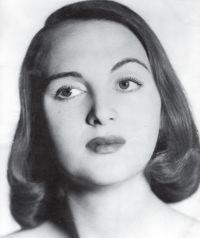
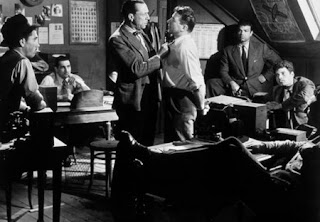
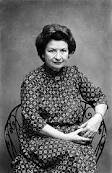


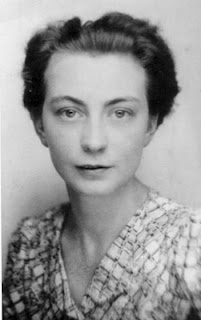
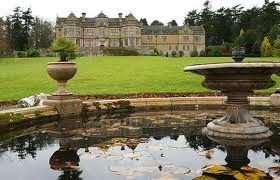


Comments